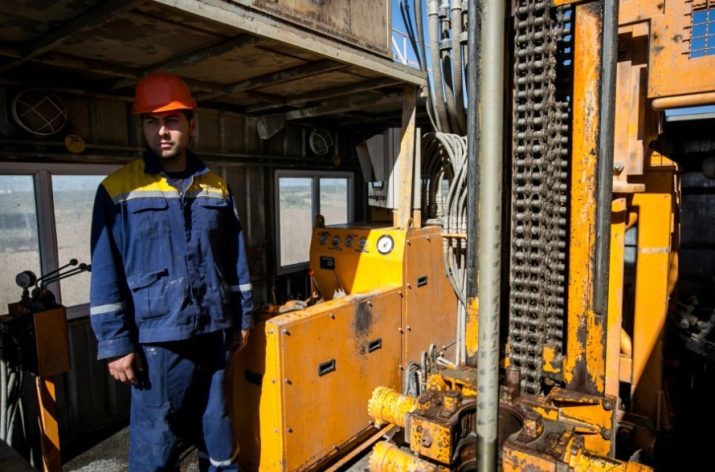All about the profession of a drilling rig operator
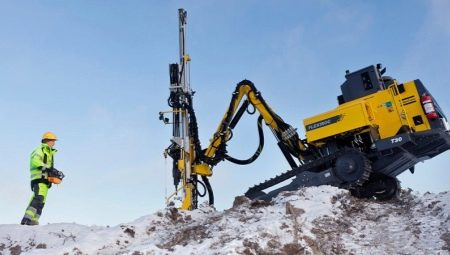
In the past few years, young people have begun to be attracted to blue-collar jobs. Despite the fact that office positions are still leading in popularity, a large number of high school graduates began to think about getting a working profession. Today in our article we will talk about who a drilling rig operator is and what his job is.
Peculiarities
Drilling Rig Operator - an employee whose duties include the implementation of drilling processes. Most often, such activities are relevant when discovering deposits of natural resources (for example, oil or gas) or even exploring them. The driver is directly involved in the operation of the drilling rig, and, if necessary, in the repair and adjustment of such complex equipment. Thus, we can conclude that the work of a specialist is very difficult and responsible. A person holding such a position must have a large amount of specialized knowledge, skills and abilities.
At the same time, it is worth noting the fact that, like any other profession, the position of a specialist in charge of operating a drilling rig is characterized by not only positive but also negative features.
Before finally connecting your life with this area, it is important to evaluate all the parameters.
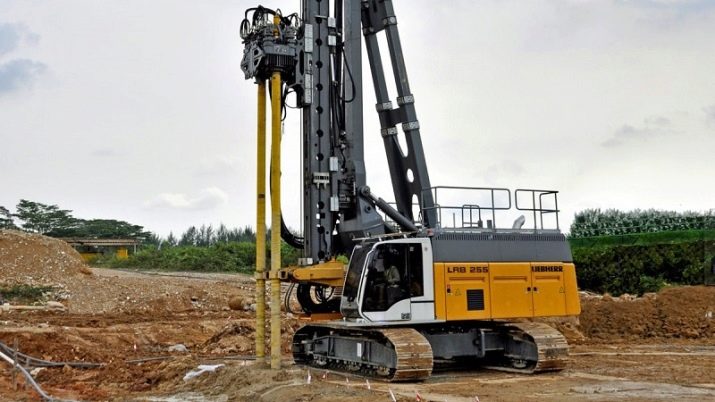
The advantages of the professional activity of a drilling rig operator include:
- prestige and status (on the territory of the Russian Federation, work related to oil and gas production is considered respected);
- demand (a person with the appropriate qualifications will not be left without work, since today there are a large number of open vacancies);
- high wages (material remuneration for the work of a drilling rig operator ensures a high standard of living);
- high probability of career growth, etc.
However, in addition to the pros, there are also disadvantages. Among them, the following are most often distinguished:
- the demand for specialists only in some regions of the country (accordingly, in order to get a job, it will be necessary to move or work on a rotational basis, which is not acceptable for every person);
- a high level of responsibility (even a small mistake of an employee can lead to serious negative consequences), etc.
As you can see, the advantages of the profession far outweigh the disadvantages. However, for some people, the disadvantages are so significant that they give up the job. One way or another, but it is important to carefully analyze all the details and nuances in order to make an objective and balanced decision, which you will not regret in the future.
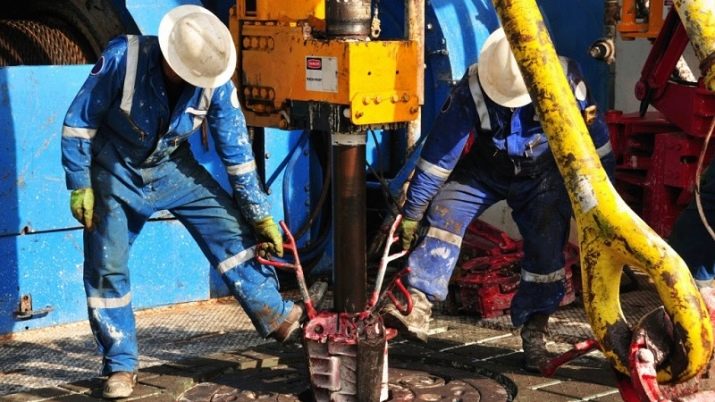
Responsibilities
The profession in question is included in the unified tariff and qualification reference book (or ETKS). Here all its features and distinctive characteristics are spelled out in detail. So, according to this document, the specialist must carry out his work strictly in accordance with the job description, in which all the duties of the employee are detailed:
- drilling operations at a well-defined construction site;
- carrying out mining activities;
- selection and packaging of samples necessary for detailed study (for example, soil or water samples);
- transportation of necessary items;
- compliance with safety regulations, etc.
Thus, job description Is the most important document. Each employer, even at the stage of interviews and interviews, invites applicants to get acquainted with him so that the applicant for the position can soberly assess his strengths and understand whether he meets the requirements for him. At the same time, the list of responsibilities given above is not closed. Each employer can supplement and change it depending on the specifics of the activity of a particular enterprise. Accordingly, a highly qualified specialist must be able to quickly adapt and adapt.
It should be borne in mind that for refusal to fulfill or for poor-quality fulfillment of his official duties, the drilling rig operator may be held liable.
And since the profession is associated with great risks and a high level of responsibility, then we can talk not only about collection or dismissal, but even about criminal prosecution.
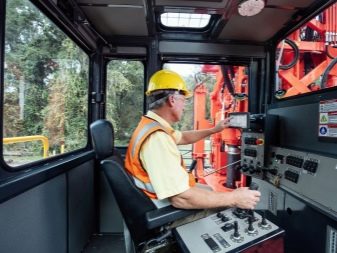
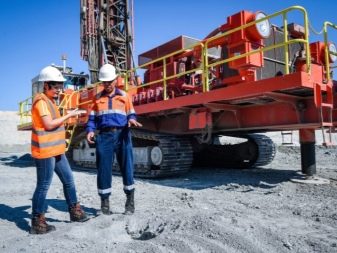
Knowledge and skills
As mentioned above, the rig operator must perform a whole list of complex functions and tasks. To do this as competently and efficiently as possible, he must have specialized professional knowledge, skills and abilities, among which are:
- knowledge of regulatory documents, laws and by-laws that govern the professional activities of a specialist;
- knowledge of labor legislation;
- knowledge of the rules of sanitation and hygiene;
- knowledge of internal regulations;
- knowledge of the device and technical features of the drilling rig on which the direct work is carried out;
- an understanding of the constituent parts of oil rigs and masts;
- the ability to properly carry out the drilling procedure (with and without coring) in various environmental conditions;
- knowledge of the basics of cementation, silicatization, grouting, bitumenization, freezing of wells;
- the ability to carry out repair and commissioning work (with regards to the equipment being operated) and many others. dr.
In addition, depending on the specifics of the activity of a particular enterprise, as well as the wishes of the employer knowledge and skills requirements may change... In any case, a specialist cannot be limited only to a basic list.
It is recommended to constantly replenish your knowledge base, as well as master new skills in order to remain relevant and in-demand specialist in the labor market, as well as to quickly move up the career ladder.
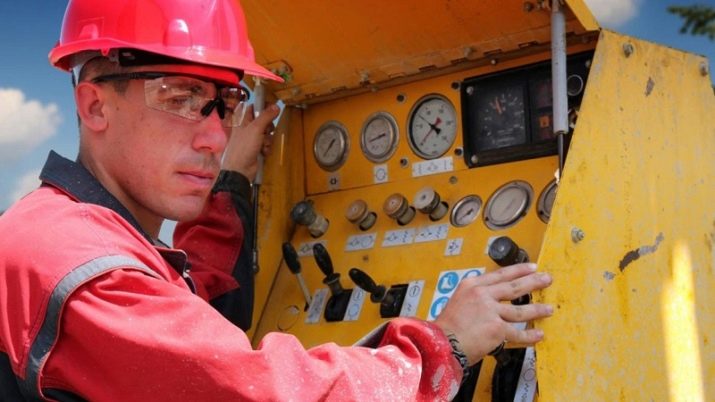
Education
In order to qualify for the position of rig operator, you must complete the appropriate training. Most often, employers recruit those candidates who have a secondary vocational diploma from a college or technical school. In this case, an important role is played not only by the presence of the diploma itself, but also by the assessment in it. In some cases, employers can also accept specialists who have completed specialized courses.
It should be noted right away that the learning process is rather complicated and complex. So, the student will have to study:
- design and operating principles of drilling machines and related equipment;
- rules and methods for implementing the direct drilling procedure;
- geology;
- drilling machine operating standards;
- labor protection and many others. dr.
In addition, in the process of obtaining education special attention should be paid to internships and practices, which are an integral part of the study. It is in the process of practical activity that students acquire the necessary skills that will be useful in further work, and also gain invaluable experience.
It is also worth noting that one should not stop at getting only basic education. Even after employment It is recommended that you regularly attend various specialized courses, seminars and lectures to stay up-to-date with the latest innovations in the industry. It is also important that, depending on the competence of a specialist, his rank changes - the higher it is, the more complex and complex duties and tasks are included in the job description, respectively, the higher the material remuneration for the work of a specialist. So, a driver of the 3rd category, in the course of performing his work functions, uses installations of the 1st category in drilling, uses motor-drills and portable hand-held kits. At the same time, the employee with the highest - 6th - qualification, controls the correctness of the performance of his duties by other employees and occupies a managerial position.

Place of work
After completing the training, a young specialist can apply for the position of an assistant drilling rig operator. The thing is that at this stage a person still does not have the required amount of theoretical knowledge and skills to fully and competently perform the necessary work. After some time (depending on the training ability and activity of a specialist), he can move to the position of a machinist and gradually (over time and with advanced training) increase his rank.
As for the branches of human activity, most often such specialists are involved in such areas as:
- oil and gas;
- gold mining;
- geological industry;
- engineering survey area, etc.
Wherein specialists can work both in government agencies and in private organizations. Both options have both advantages and disadvantages. For example, in the private sector, the material remuneration for labor is much higher, but on the other hand, state organizations offer a full social package.
Depending on your professional ambitions and desires, you can remain in the position of a drilling rig operator all your life, only increasing your rank, or move up the career ladder. So, often such specialists reach the level of a junior engineering and technical worker. At the same time, further growth is possible when obtaining higher education.
As for the immediate working conditions, regardless of the specific place of work, they are quite difficult.One can distinguish an increased noise level, the presence of vibration, work at height, emotional overload, etc.
